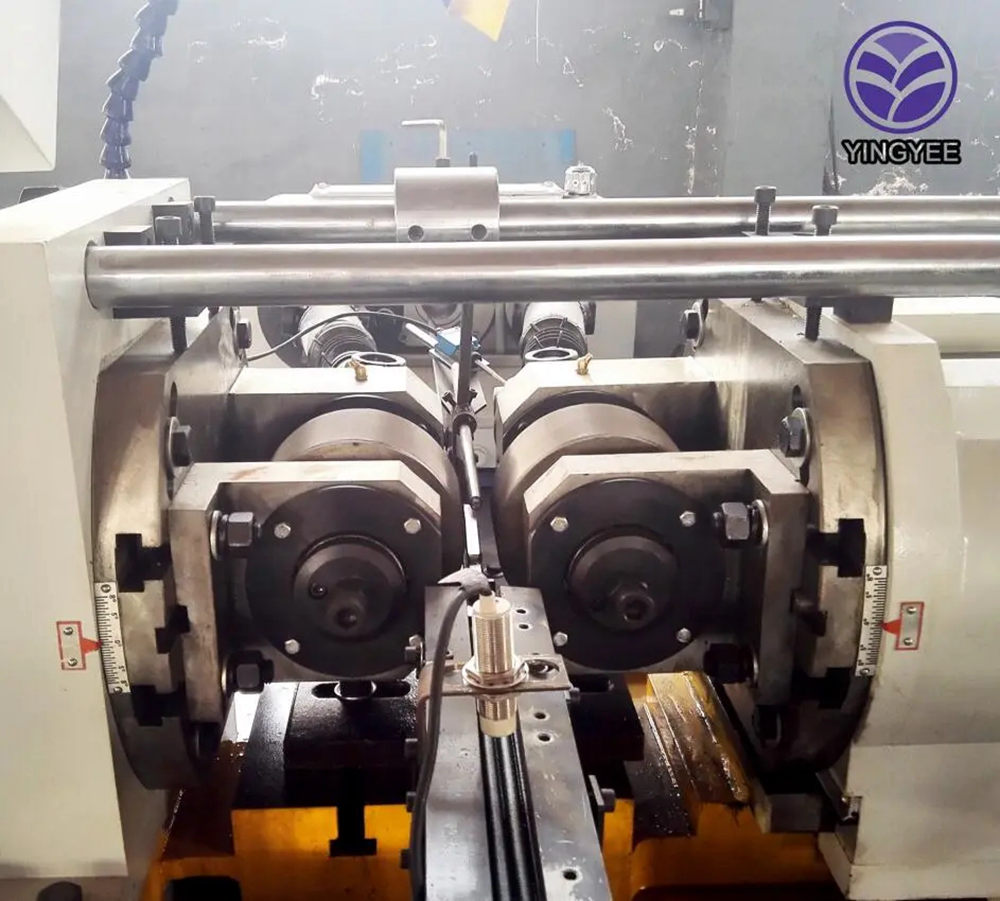
The Thread Rolling Machine Revolutionizing Fastener Production
Thread rolling machines are vital tools in the manufacturing industry, particularly in the production of fasteners and various threaded components. These specialized machines use a unique process known as thread rolling, which is essential for producing high-strength threads with superior tolerances and finishes compared to traditional cutting methods.
Understanding Thread Rolling
Thread rolling is a cold working process that deforms the material to create threads, as opposed to cutting away material. This method offers numerous advantages, including increased material strength, improved surface integrity, and reduced waste. The process generally involves placing a cylindrical workpiece between two or more dies, which then apply pressure to mold the material into the desired thread profile.
The machines used for this process can vary widely, from simple manual setups to sophisticated automated systems. These machines can handle a variety of materials, including steel, aluminum, and brass, making them versatile solutions for different applications.
Advantages of Thread Rolling Machines
One of the primary benefits of thread rolling machines is the enhanced strength of the threads produced. Since the material is deformed, it retains its grain structure, resulting in threads that are significantly stronger than those created through cutting processes. This characteristic is particularly important in industries where structural integrity is paramount, such as automotive and aerospace manufacturing.
Additionally, thread rolling is known for its efficiency. The process is typically faster than traditional machining, leading to higher production rates. This efficiency not only increases output but also reduces energy consumption, aligning with the modern focus on sustainable manufacturing practices.
Moreover, the surface finish achieved through thread rolling is often superior. The process compresses the surface of the material rather than tearing it, resulting in less friction and a smoother finish. This is crucial for applications that require components to fit tightly and operate smoothly.

Applications of Thread Rolling Machines
Thread rolling machines find applications in a wide range of industries. In the automotive sector, they are used to produce screws, bolts, and nuts that must withstand high levels of stress and torque. The aerospace industry also relies heavily on these machines to manufacture components that must be both lightweight and resilient.
Additionally, thread rolling machines are used in the production of fasteners for construction, electronics, and machinery. Their ability to produce precise threads quickly and efficiently makes them indispensable in modern manufacturing.
Future of Thread Rolling Technology
As technology continues to evolve, so too does the thread rolling machine. Innovations such as CNC (computer numerical control) technology are being integrated into thread rolling processes, allowing for greater precision and flexibility. This advancement enables manufacturers to produce complex thread profiles that were previously difficult or impossible to achieve.
Furthermore, the push toward automation in manufacturing suggests that thread rolling machines will become even more efficient and user-friendly. Features like automated feeding systems and real-time monitoring will enhance productivity and minimize error rates.
Conclusion
In summary, thread rolling machines are crucial in the manufacturing of high-strength, precisely threaded components. Their benefits include enhanced material strength, improved efficiency, and superior surface finishes, making them a preferred choice in various industries. As technology advances, the capabilities of thread rolling machines will continue to expand, further solidifying their place in future manufacturing processes. The ongoing development of these machines promises to drive innovation and efficiency, setting new standards in the production of threaded fasteners worldwide.